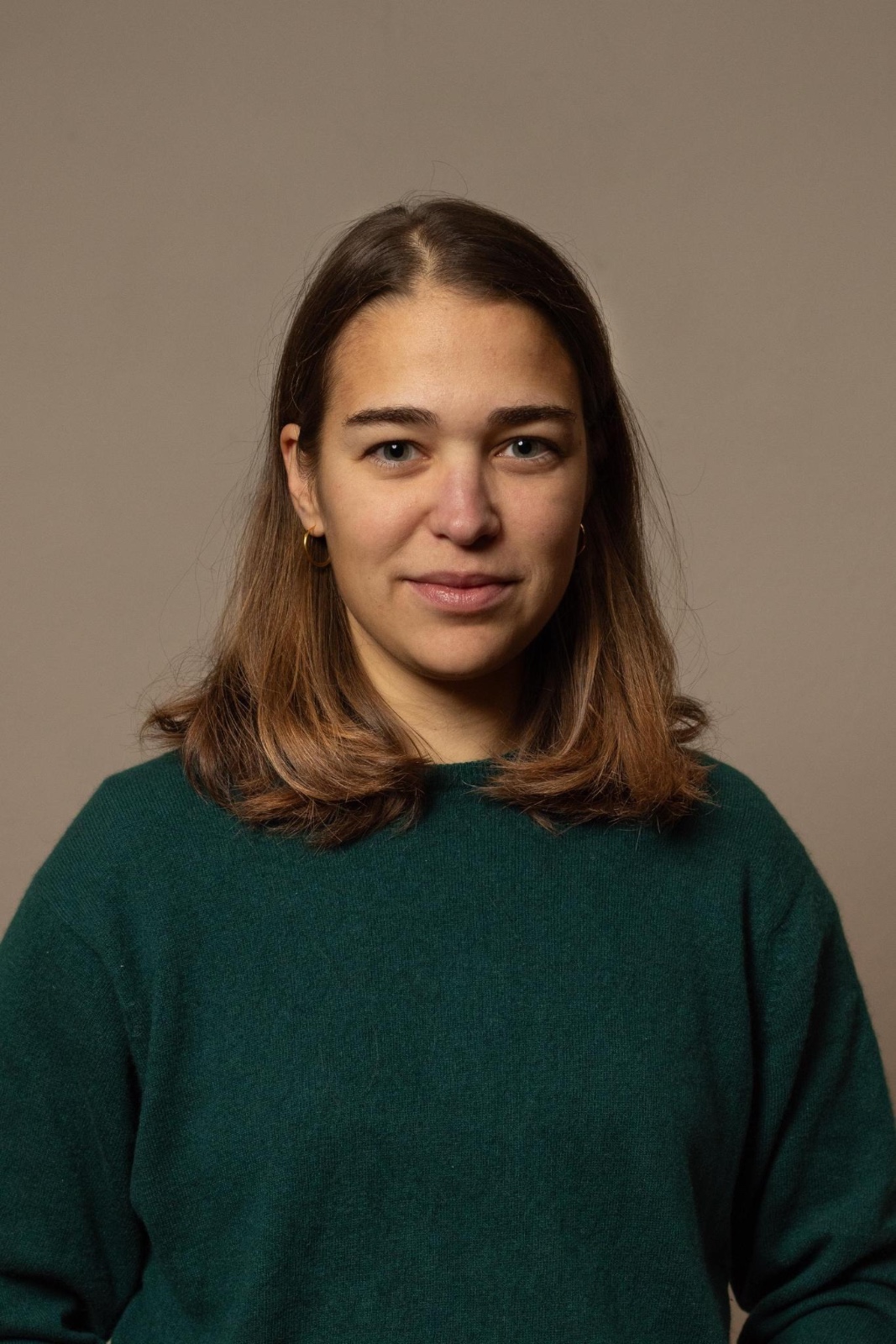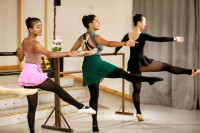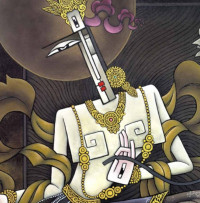Culture & Lifestyle
Stitching the path to empowerment
La Dhoka’s sewing courses offer women more than tailoring skills—they provide a sense of community.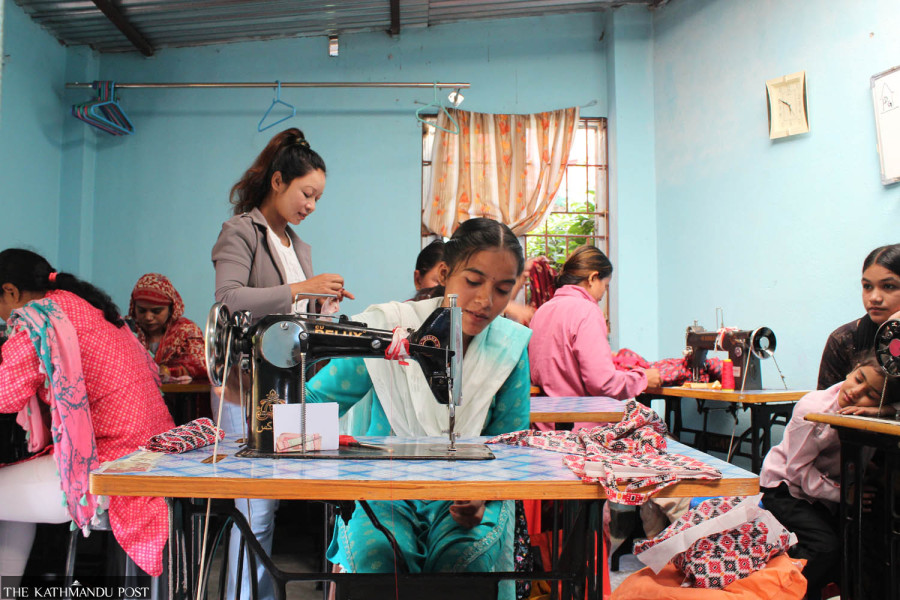
Xenia Klaus
Kusma Kumari Magi carefully folds the black cloth on the ground before her, then reaches for the notebook beside it. Her eyes go back and forth between the cloth and the paper for a while before she grabs a piece of chalk and enlarges the drawing onto the cloth. Currently rectangular, it is soon to become a pair of pants. The notebook tells Magi how to get there.
Magi is one of 30 La Dhoka’s sewing course participants. Since 2012, the NGO's office has been situated in Balkhu, in a building they refer to as 'Narighar'. The house’s rooms are used for classes and meetings, with sewing courses forming the core of the NGO's programme. These courses span nine months, including six months of basic training and three months dedicated to designing one’s clothing.
In addition to sewing, ‘Narighar’ provides Nepali language classes and runs a ‘saving group’, where women come together to support one another by offering microcredits for projects they would otherwise be unable to fund.
One of the founders of La Dhoka sits very close to where Magi is focusing on her pants: Laxmi Dhungel’s office lies across the hallway. The other founder of the NGO is much further away, across the globe, in Switzerland. Dhungel says that after finishing her sociology studies, she was keen on having her own project for women and kids. Dhungel is a tall woman speaking with conviction. While she was sure she wanted to do social work, she didn’t know how to fund it.
Dhungel is religious and says, “I dreamt that I would cross paths with somebody that would help with the funding and I did.” In 2oo8, the native Swiss Simone Moser travelled to Nepal to do volunteer work, where a friend introduced her to Dhungel. Working as a teacher in Switzerland, Moser was quickly convinced by Dhungel's ideas. Upon her return to Switzerland, she started raising funds and sent them to Dhungel for her project; together, they got La Dhoka registered as an NGO. Moser travelled back to Nepal several times after this—the last time in 2022, mainly on a bike.
Sewing and Saving
La Dhoka did not start as the project it is today. In its beginning, it was mainly a shelter for kids. With time, Dhungel focused more on women, though the NGO still has a scholarship programme today. She explains that her focus on women stemmed from her personal experiences. “After I got married, I felt more pressure than before. Before marriage, I felt free, but afterwards, I suddenly had the added responsibility of managing a household alongside my work. That’s when I realised how challenging it is to be a woman—and even more so for many others.”
Although she was certain about wanting to support women, the exact nature of her initiative was initially unclear. “I went around the neighbourhood to understand what was needed,” Dhungel shares. In 2012, ‘Narighar’ was established as a community house where women could gather in groups to discuss and engage with various topics.
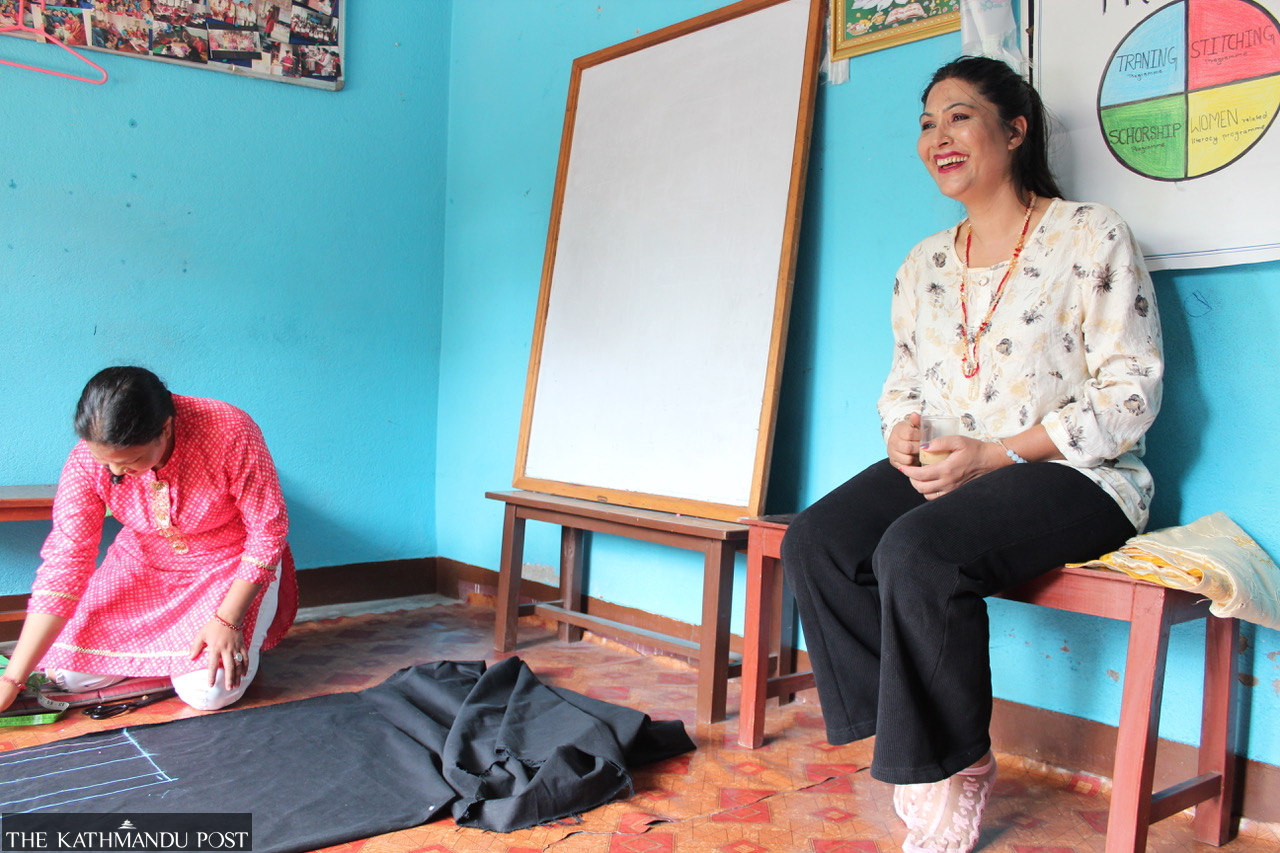
With time, says Dhungel, some suggestions crystallised as the most sought-after. Those were the saving and the sewing.
The scope of sewing classes expanded with time and is closer to tailoring education today than simple classes. In the meantime, the project has become somewhat of a mobile perpetuum: The teachers currently working for ‘Narighar’ were once students here. The students are often sent here by other women who have completed the course in earlier years. Dhungel explains that the demand far exceeds their offer, so they carefully screen applicants. “The courses are free, and we have a waiting list. We aim to provide these courses to women who cannot afford similar opportunities elsewhere.”
Income and Independence
Most of the women’s stories in the course are similar: The majority did not grow up in Kathmandu but migrated here. Some have been here for over a decade, and some just arrived a year ago. “Schools for the kids, work for me,” is the answer of most when asked what made them uproot their lives and move to the capital.
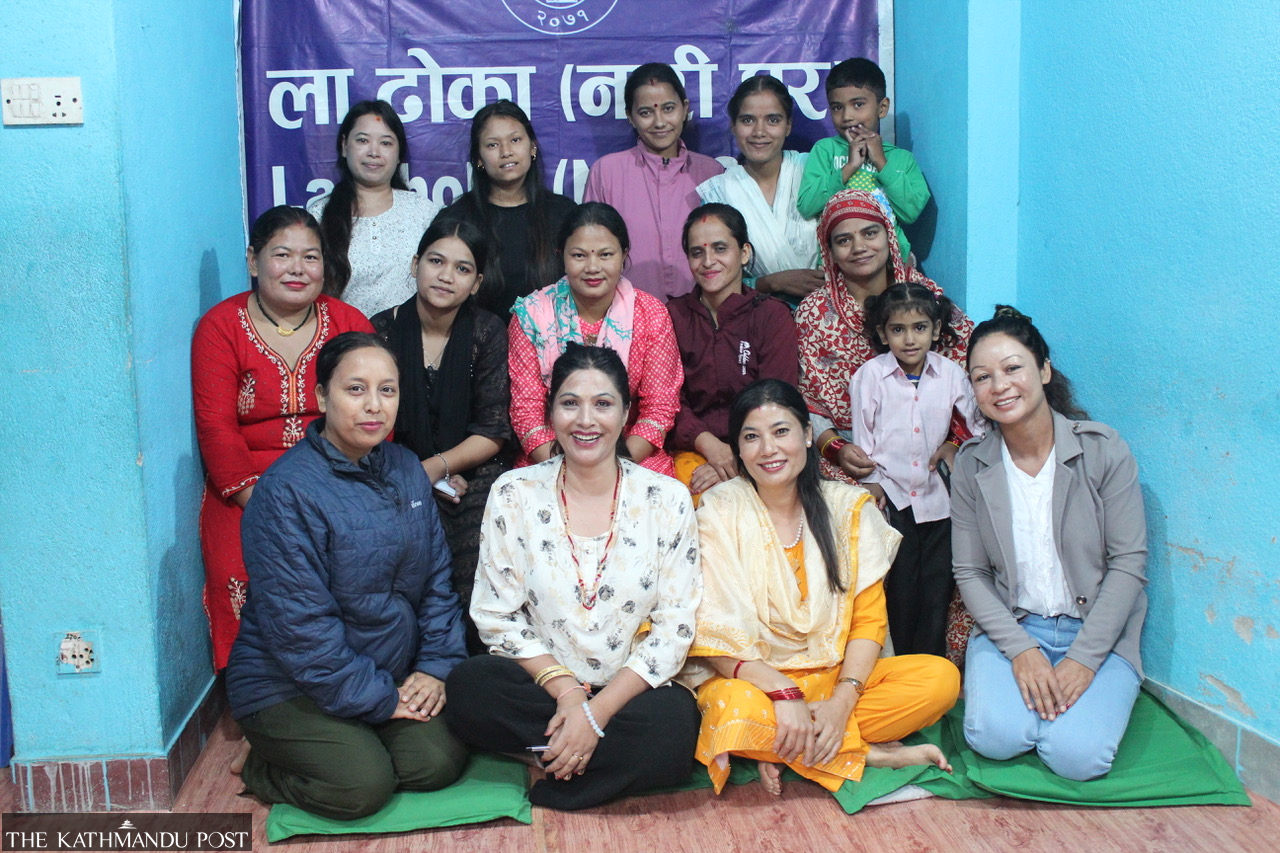
The favourite part of the course? “Learning how to sew a Kurta,” says Rita Koirala, and the others nod. The least favourite part? “Stitching things by hand,” says Koirala. “Calculating the different lengths is challenging,” says Shiva Kumari Magar. She says she never went to school, aside from literacy class, for a while. Dealing with numbers? “It’s not easy,” she says.
Several women, like 23-year-old Sujana Tamang, already work in tailor shops. The owner of that shop went through the La Dhoka course herself. Once Sujana finishes the course, she wants to open her shop, as do quite a few women here.
Two girls, Reshma and Saniya, 17-year-old twins, don’t fully fit the usual mould. Saniya isn’t enrolled in the course but helps by caring for the two young children of their older sister, Ladali, who is a participant. Meanwhile, Reshma is learning tailoring alongside completing her +2 education, with plans to use the skill to supplement her family’s income. However, tailoring doesn’t appeal to Saniya. “I want to be a doctor,” she says. Founder Dhungel herself also does not know how to tailor. She says, “I’m not particularly fond of working with my hands.”
But that doesn’t matter, she adds. The fact that most women aspire to open their own shops aligns perfectly with her objective. Her aim, she explains, is to equip women with more skills and opportunities to earn income and achieve independence. However, this independence extends beyond the women themselves. “After running the kids’ shelter, we wanted to create something more systemic to support entire families. We believe we are achieving that here,” she says.




 10.12°C Kathmandu
10.12°C Kathmandu